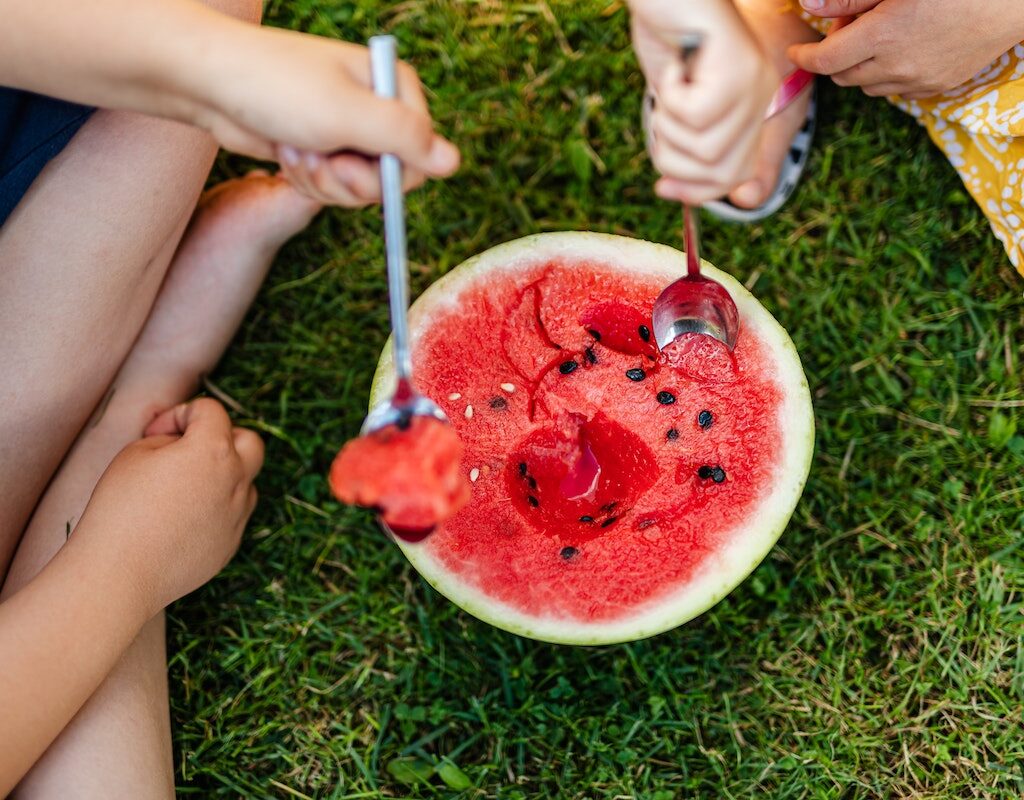Picture this – a world where vibrant health and boundless energy go hand in hand with scrumptious meals and happy kids. As parents and caregivers, we hold the key to unlock the door to healthy eating habits in children. By sprinkling a touch of creativity and a pinch of guidance, we can embark on an enticing journey to nourish their growing bodies and ignite their passion for nutritious choices. Get ready to discover some simple and effective strategies to support healthy eating habits in kids!

- Go Food Shopping With Your Kids: Transform grocery shopping into an educational and interactive experience. Involve your children in selecting fresh fruits, vegetables, whole grains, and lean proteins. Teach them about different food groups, reading labels, and making nutritious choices. This hands-on approach empowers them to understand and appreciate healthy foods.
- Let Your Kids Help You Cook: Encourage your children to participate in meal preparation. Let them wash vegetables, mix ingredients, or even suggest healthy recipes. Involving kids in the cooking process cultivates their interest in nutritious foods and helps them develop important culinary skills.

- Focus On Quality over Quatity: Instead of obsessing over portion sizes, focus on the quality and variety of foods offered. Offer a balanced plate with a range of nutrients and flavors. Respect your child’s appetite and encourage them to eat until they feel satisfied rather than forcing them to finish everything on their plate.
- Have a Snack Plan: Keep a variety of healthy snacks readily available, such as cut-up fruits, veggies with hummus, or yogurt. When kids have easy access to nutritious snacks, they are less likely to reach for processed and unhealthy options. Create a snack routine that includes scheduled snack times to avoid constant grazing.

- Breaking the Food Bribe Cycle: Using food as a reward or punishment can create an unhealthy relationship with eating. Avoid using sweets or treats as bribes for desired behavior. Instead, find non-food rewards such as fun activities or quality time together, reinforcing positive behavior without relying on unhealthy food incentives.
- Don’t Demonize Certain Foods: Labeling certain foods as “good” or “bad” can create a negative mindset and lead to an unhealthy relationship with food. Teach your children about moderation and balance. Explain that all foods can be enjoyed in moderation, and focus on the overall pattern of healthy eating rather than individual food choices.

- Remember That Kids Are Watching and Listening: Lead by example and be a role model for healthy eating. Children observe and mimic their parents’ behavior, so it’s important to demonstrate good eating habits yourself. Incorporate a wide variety of nutritious foods into your own diet and show enthusiasm for healthy meals.
Supporting healthy eating habits in kids involves creating a positive and empowering environment. By involving children in food shopping, cooking together, and avoiding restrictive approaches, we can foster a lifelong appreciation for nutritious foods. Remember, our actions and attitudes towards food have a significant impact on our children, so let’s provide them with the knowledge and tools to make healthy choices.
Check out our article on ways to promote exercise among kids

